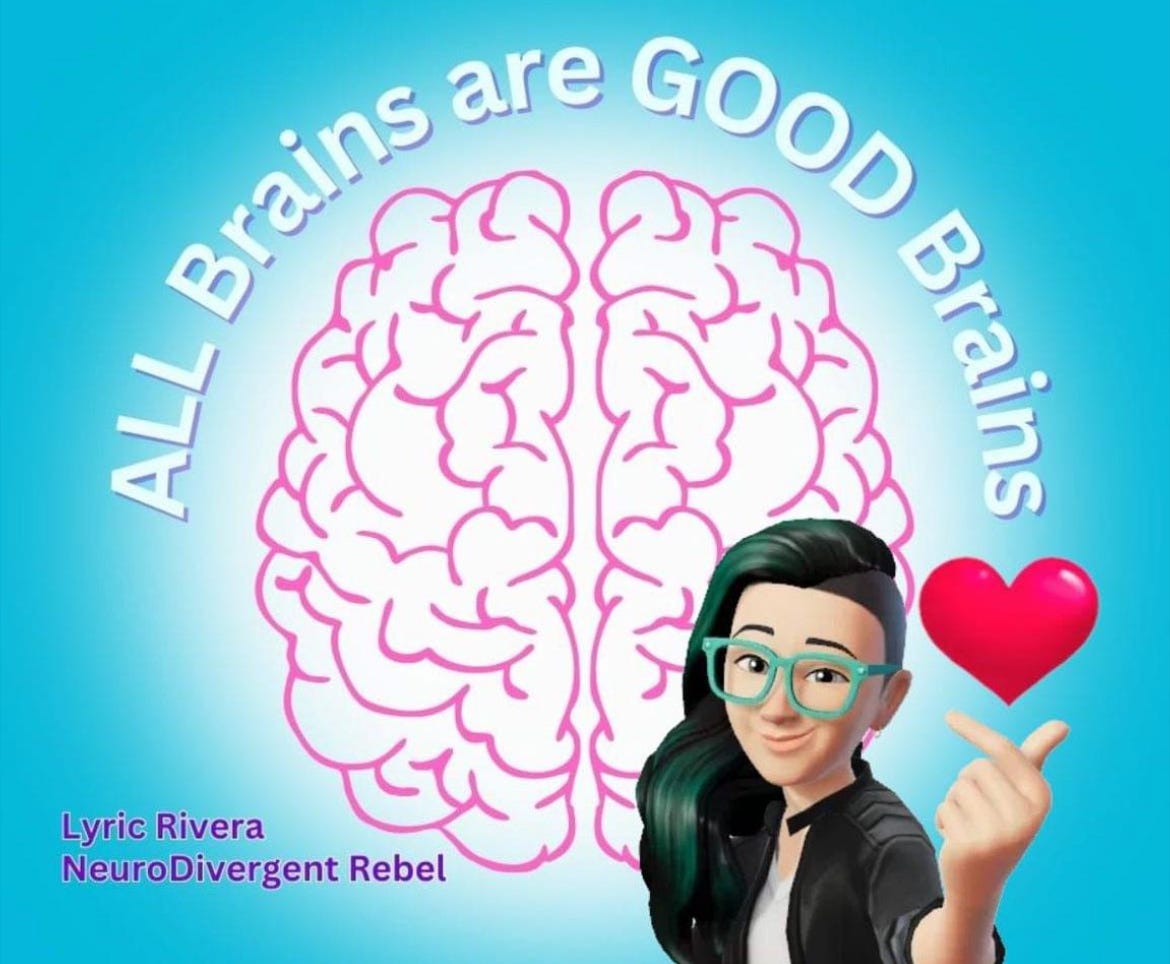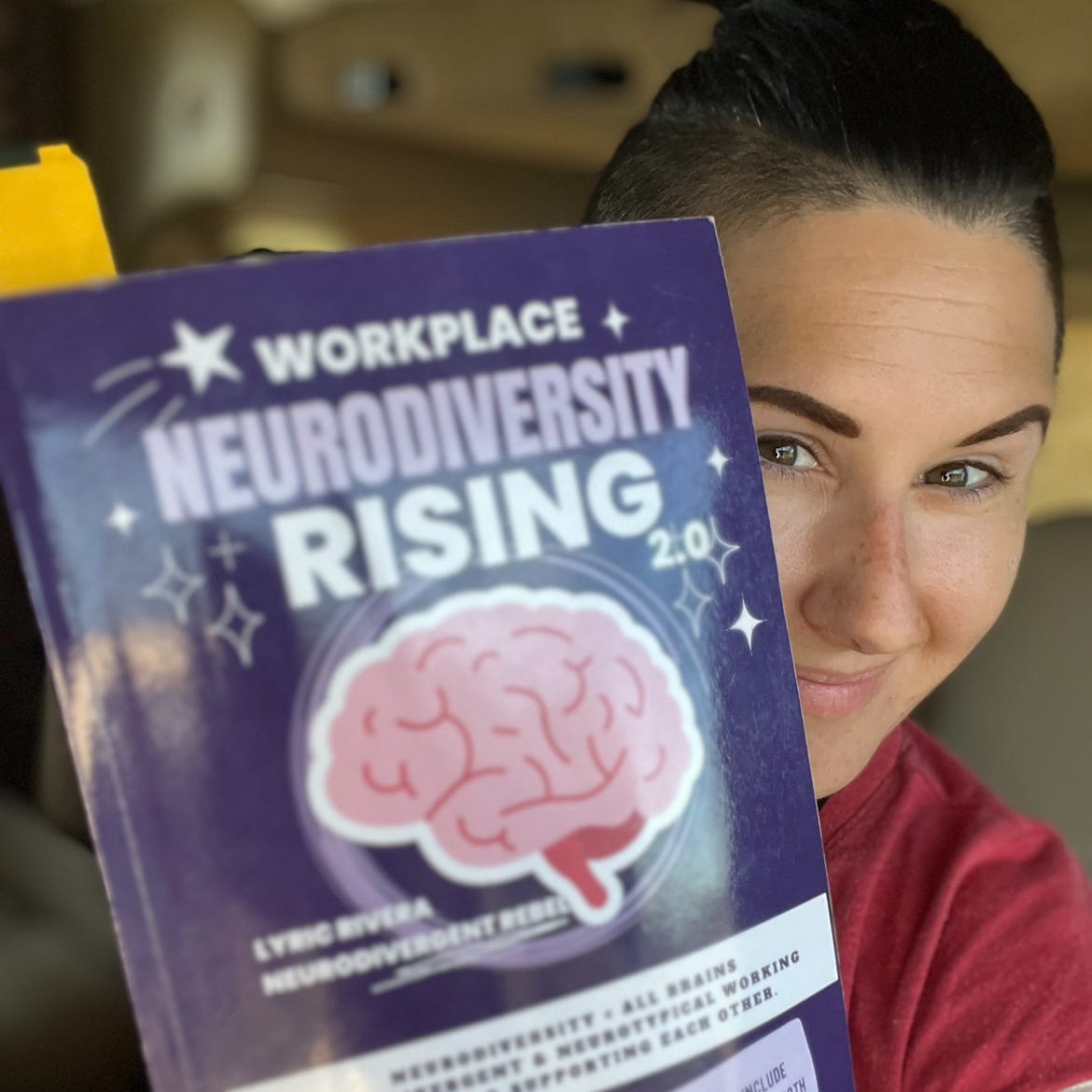Understanding Oneself is Powerful - Preview from My Next Book
When you are a NeuroDivergent Person living in a world of Neuro-Average people, even if you don't have words for what makes you different, you KNOW you are different.
Earlier this week week I shared the first preview of my new book on NeuroDiversity in the wider world (title coming soon). Today I am sharing another excerpt from the first draft of that same book.
I would like to thank my subscribers and supporters for making this blog, and this book (which I hope to get out in the next year or two) possible.
Being able to know oneself is a powerful thing. However, I (like many NeuroDivergent People born before the 1990s) spent most of my life not knowing my true self, instead only knowing the version of myself other people told me I was supposed to be.
When I did not know the truth about my brain, I pushed myself to act like the people around me (whose brains were very different from mine). I also had weak boundaries, letting other people 'set the bar,' mimicking and emulating the people around me (while denying my own wants, needs, hopes, and desires)—masking or camouflaging myself to be more like the average person, molding myself to fit normative expectations.
After being diagnosed Autistic at the age of 29, I found myself wondering, "Who am I (outside of what society has shaped me to be)?"
Upon learning about my NeuroDivergent mind and immersing myself in various communities of NeuroDivergent adults, I quickly came to realize that I was not alone and that there are many NeuroDivergent People out there who, like me, have been denied a chance to truly know themselves (outside of NeuroTypical expectations and norms).
Without having the opportunity to know ourselves, our needs, and the various ways our minds diverge from the average, we are limited, held back, and pressured to hide who we truly are (so that we may fit ourselves neatly into a world that is unwilling to flex, and often punishes, mocks, and scolds those of us who are considered "different" unless we are entertaining or useful).

Not knowing myself made it difficult for me to get my needs met.
Speaking up about my needs without words to convey them (to people who didn't believe me) often didn't go well.
People always seemed to think they knew me better than I knew myself.
When I didn't have the vocabulary (of NeuroDivergence and NeuroDiversity) to describe my experiences, it was easier for me to let others push back against my wishes, needs, and boundaries, telling me what they felt I needed.
Those who don't understand the NeuroDiversity Paradigm and the vast spectrum of Neuro-Differences occurring across humanity often (falsely) operate from the assumption that the people around them have the same experiences, motivations, needs, and abilities as they do (a harmful assumption that ignores and erases the experiences of those in the Neuro-Minority). However, if someone has heard of (and understands) NeuroDiversity, they would know that there is no "ideal human brain" and that people have variety in their sensory, emotional, cognitive, and personality differences (originating within their brains and nervous systems).
People aware of these differences are better equipped to communicate and engage more effectively with people of all brain types, causing less harm in their encounters with others (assuming they can set aside their assumptions and judgments based on the falsehood that all human brains are the same or that there are "good brains" and "bad brains").
Harmful Assumptions
The assumption that we all experience things the same way (or that one brain type is more ideal than another) harms everyone. Still, it is particularly harmful to those who diverge further from the Neuro-Normal Average (especially multiply-NeuroDivergent People, whose layering of multiple NeuroTypes or brain types can make being able to blend in and conform to societal expectations impossible, especially without significant modifications to the environment or support).
Growing up, as a NeuroDivergent Person who didn't know they were NeuroDivergent, the assumptions from other people that I "was average" and "should be able to keep up with the people around me" all the time set me up for failure and unfair expectations.
Eventually, after other people had placed enough external unfair expectations upon me, I began to internalize the same behavior, taking up the habit of placing impossible, cruel, and unfair expectations on myself (like overcommitting, overworking, unhealthy perfectionism, and not being allowed time to rest or do things I enjoyed unless they were productive) with devastating results.
In my mind, I deserved the punishment and abuse I dished out to myself because of how much of a "failed person" I was. Maybe one day, I could grow worthy of kindness from myself and others (if I worked hard enough).
Even without a language to describe them, I thought NeuroTypical People were the model of success I should strive for. I believed that until I reached that Neuro-Normative ideal version of myself, I wouldn't deserve love, fun, or rest—which didn't end well.
I needed a wake-up call to snap myself out of this cycle of self-denial, degradation, neglect, and abuse.
Paid subscribers have access to the rest of the story. Thanks to every one of you for supporting my work.
If you are in need of a discount, please use the button or link below to get your subscription at a deep discount (because I don't want money to be an obstacle to people):
https://neurodivergentrebel.substack.com/LowIncomeDiscount
For readers experiencing financial hardship, please note that this offer is exclusively for you. This discount is offered on the “honors system” - I am not going to ask anyone for proof.
Please, kindly refrain from taking this offer if you do not need it.
I hope this helps,
- Lyric
Keep reading with a 7-day free trial
Subscribe to NeuroDivergent Rebel’s Substack to keep reading this post and get 7 days of free access to the full post archives.






